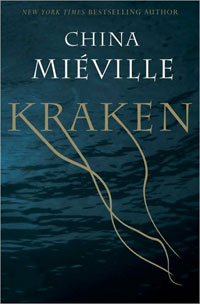Professional & Ethics in Blogging, Round 2
It’s been a few weeks since my Book Blogger Convention talk on professionalism and ethics for book bloggers, but I am still seeing new responses—earlier today, I found a particularly thoughtful critique by Jessica, a philosophy professor specializing in ethics that zeroed in on a few areas where, in reviewing the video, I recognized a need to tighten up my presentation, as well as a few spots that I had missed. I’m not going to touch on all of them in this post, I suspect, but I did want to get some thoughts down.
Jessica notes that the stylistic lines between “professional” literary critics and “unprofessional” book bloggers are not clear-cut; bloggers often engage in “objectivity-enhancing practices” such as not reviewing friends’ books, for example, and mainstream literary criticism is, ultimately, subjective. It reminded me of a point that came up in an interview I did a few years back about the philosophy of wine: “On the one hand, we insist that it’s all subjective,” I wrote after my conversation with Barry Smith. “But, if so, what’s the point of any wine criticism, let alone the attempt to establish standard rankings? Wouldn’t complete subjectivity reduce criticism to autobiography? (I immediately think of useful parallels that might be drawn to literary criticism.)”
That’s not a question that can be resolved very easily; I only want to point out for now that if the line of demarcation between the professional and unprofessional “writing about books” were essentially stylistic, it might also be arbitrary, with attempts by professionals to suppress the proliferation of “unprofessional” writing, or at the very least its influence, stemming from highly vested self-interests—which circles back to my point that “professionals” set up the standard of what is real/valid in order to validate their own reality and deny power to others.
19 June 2010 | uncategorized |
Read This: Kraken
 Today I made my debut as the science fiction and fantasy reviewer for Shelf Awareness, an online newsletter that provides “daily enlightenment for the book trade,” and I led off with an endorsement of the new China Miéville novel, Kraken. It’s a sprawling urban fantasy epic that starts with the impossible theft of an eight-meter squid from London’s Natural History Museum and escalates into a quest to figure out which of the city’s many apocalyptic cults is attempting to jumpstart the end of the world.
Today I made my debut as the science fiction and fantasy reviewer for Shelf Awareness, an online newsletter that provides “daily enlightenment for the book trade,” and I led off with an endorsement of the new China Miéville novel, Kraken. It’s a sprawling urban fantasy epic that starts with the impossible theft of an eight-meter squid from London’s Natural History Museum and escalates into a quest to figure out which of the city’s many apocalyptic cults is attempting to jumpstart the end of the world.
“The most dazzling moments in Kraken are found in the smaller details, like a religious street brawl between Jesus Buddhists and a cult that worships a war god polecat ferret or the police-function ‘ghosts’ [conjured] up to bring in a spirit being who’s organized a strike among the city’s magical familiars… Miéville’s magical universe has an improvisational core, following a delirious assortment of metaphors through to their conclusions. (He sketches an entire religion from the question of why Noah’s Ark is referred to in the Torah with the Hebrew word for ‘box’ rather than ‘ship.’) Ultimately it’s a crisis of faith: can we believe so strongly in something, he asks, that the universe will bend itself to accommodate that vision?”
As I point out in the review, if you’re a fan of Michael Moorcock or Neil Gaiman, you’ll probably enjoy this, too—but then, if you like them, you may already be hip to Miéville, which is why I also recommend it to non-SF fans who dig authors like David Mitchell.
17 June 2010 | read this |

 Our Endless and Proper Work is my new book with Belt Publishing about starting (and sticking to) a productive writing practice.
Our Endless and Proper Work is my new book with Belt Publishing about starting (and sticking to) a productive writing practice. 
